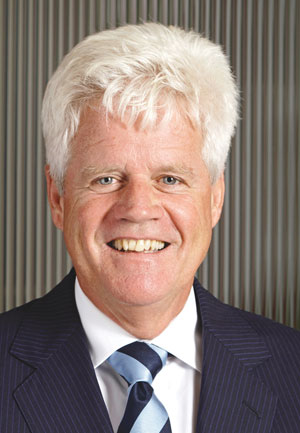An organization of prominent medical malpractice practitioners have announced they’ll continue to review and discuss draft reports with experts pending an appeal of an Ontario Superior Court of Justice decision that categorically prohibits the practice.

The Holland Access to Justice in Medical Malpractice Group, formed in 1998, is a multipartisan organization currently chaired by former Ontario associate chief justice Coulter Osborne. The group, which includes both plaintiffs’ and defence lawyers, has moved to intervene in the appeal from Justice Janet Wilson’s January 2014 decision in
Moore v. Getahun.
Jerome Morse of Morse Shannon LLP, William Black of McCarthy Tétrault LLP, and John Morris of Borden Ladner Gervais LLP, all of Toronto, represent the Holland Group.
“One of the Holland Group’s primary objectives is to consider and discuss best practices in medical malpractice cases with a view to conducting them fairly and efficiently while maximizing access to justice,” says Morse.
The issue relating to expert evidence arose in
Getahun when it emerged at trial that one of the defendants’ experts had changed his report in response to certain suggestions by counsel during a 90-minute phone conversation.
In no uncertain language, Wilson concluded “that counsel’s prior practice of reviewing draft reports should stop,” that “discussions or meetings between counsel and an expert to review and shape a draft report are no longer acceptable,” and that “the practice of discussing draft reports with counsel is improper and undermines both the purpose of Rule 53.03 as well as the expert’s credibility and neutrality.”
Wilson’s comments caused an uproar among counsel throughout Canada as they effectively condemned and prohibited long-standing practices in the litigation bar generally.
“The common understanding has been that counsel may interact with experts to ensure that the experts understand their role, the difference between the way the court approaches scientific questions and how those questions might be approached from a purely scientific perspective, the court’s process, and that they are not being asked to find facts but to draw conclusions on the basis of facts presented to them,” says Domenic Crolla, a partner at Gowling Lafleur Henderson LLP in Ottawa and a Holland Group member.
“Counsel may also test the conclusions that the experts have drawn by way of understanding the four corners of their opinion.”
On the merits, Wilson found that the plaintiff had met the burden of proving causation. The decision is under appeal. At issue is whether Wilson erred in her treatment of the expert opinion evidence called by the defendants.
In its leave materials, the Holland Group acknowledges it’s inappropriate for counsel to attempt to persuade experts to articulate opinions they don’t genuinely hold. But the group takes the position that review and discussion with experts doesn’t undermine the rules of practice or an expert’s credibility or neutrality. “To the contrary, early review of expert reports by counsel ensures that the court receives, and opposing counsel can cross-examine on, a focused, comprehensive report that accurately states the facts and assumptions relied upon and emanates from the expert’s field of expertise,” the Holland Group wrote in its factum.
In a related position paper, the Holland Group argued that absent discussions with counsel, experts’ reports will be less comprehensive with less focus. In addition, it suggested the approach might hamper the preparation of reports that are helpful to the court in understanding complex issues with counsel potentially feeling compelled to retain a shadow expert to communicate with or risk missing important issues.
“All of this will, together with numerous other adverse consequences, considerably increase the cost of litigation and limit access to justice,” says Morse. “It is contrary to the very clearly articulated objective of the judiciary that costs of litigation should not be excessive and should remain proportional.”
The Holland Group is advising the profession to continue current best practices pending the appeal. Their position finds support in
Mendlowitz v. Chiang, an unreported 2011 decision of current Ontario Superior Court Associate Chief Justice Frank Marrocco.
Marrocco held it was appropriate for counsel to make suggestions while the expert was formulating his report. He also ruled it wasn’t necessary for the expert to keep all drafts of the reports.
While both of these issues could provide fodder for cross-examination, they didn’t necessarily serve to exclude an expert’s opinion.
Crolla says he expects other interested parties, including The Advocates’ Society, will seek leave to intervene.
For more, see "The downside of judge's ruling on reviewing draft expert reports."

 The Holland Access to Justice in Medical Malpractice Group, formed in 1998, is a multipartisan organization currently chaired by former Ontario associate chief justice Coulter Osborne. The group, which includes both plaintiffs’ and defence lawyers, has moved to intervene in the appeal from Justice Janet Wilson’s January 2014 decision in Moore v. Getahun.
The Holland Access to Justice in Medical Malpractice Group, formed in 1998, is a multipartisan organization currently chaired by former Ontario associate chief justice Coulter Osborne. The group, which includes both plaintiffs’ and defence lawyers, has moved to intervene in the appeal from Justice Janet Wilson’s January 2014 decision in Moore v. Getahun.